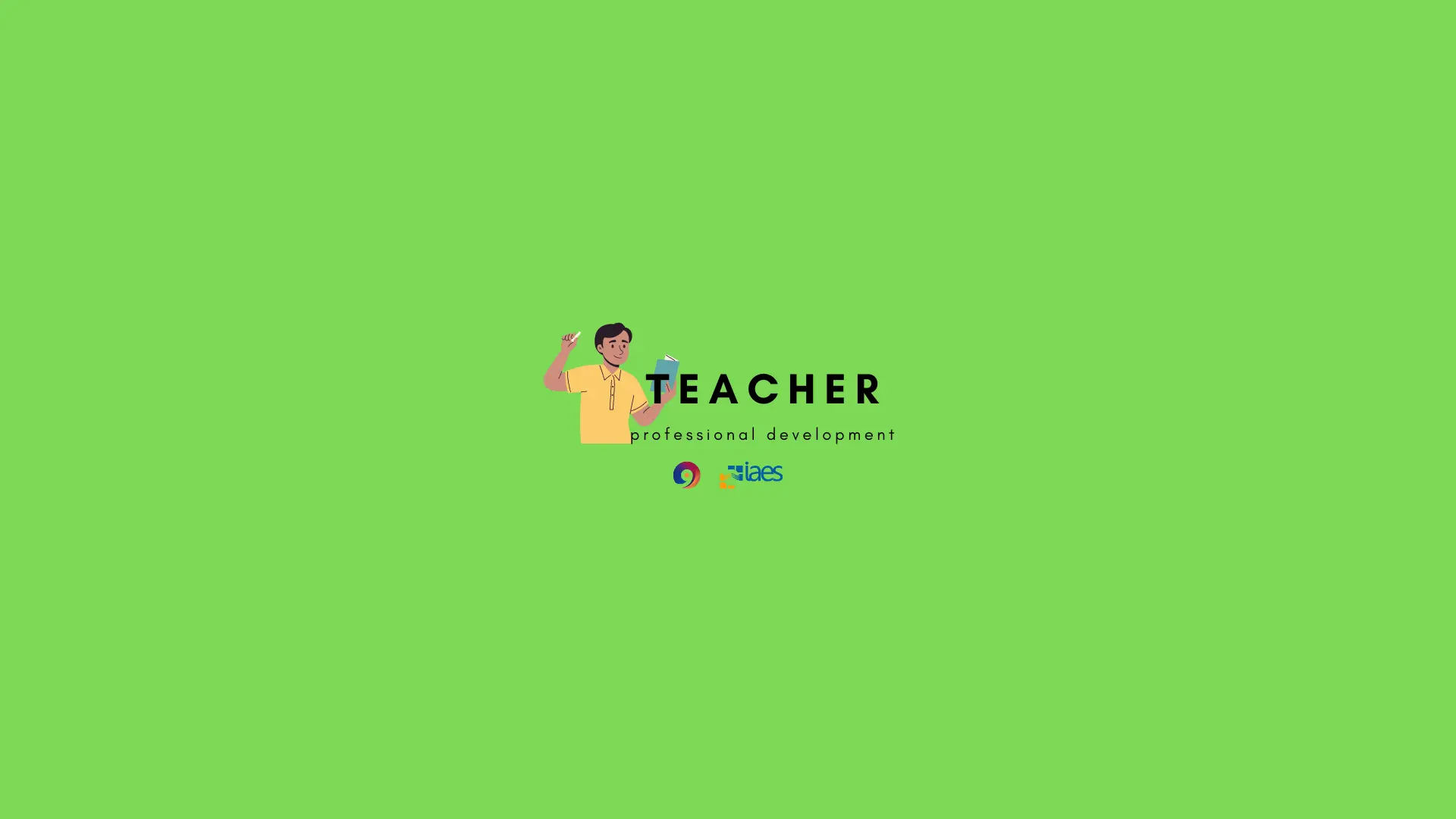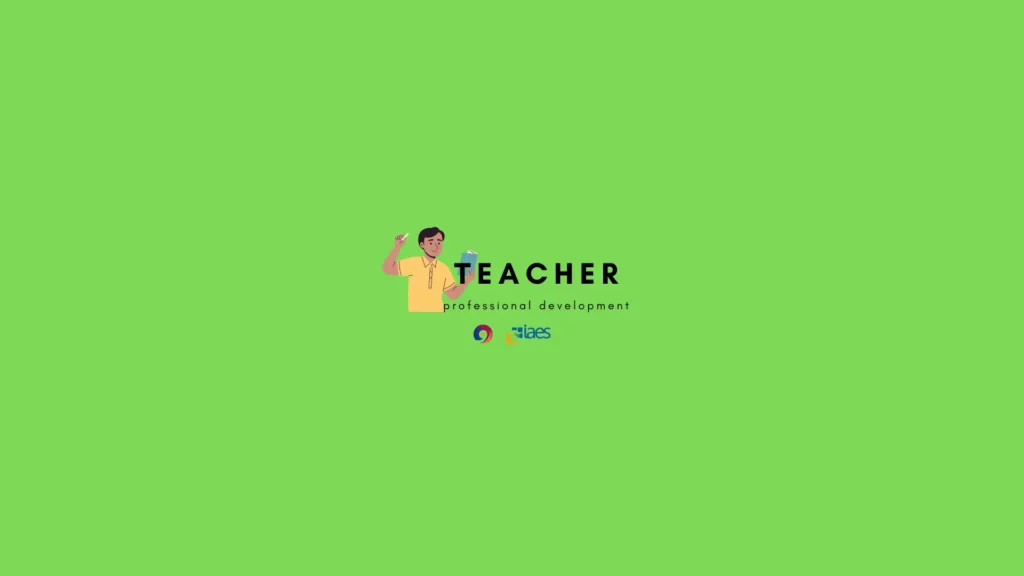Recently, there have been many issues related to academic misconduct,...
Read More



Greetings, fellow Nawala! May you always be in good health.
This is the IAES Nawala of the Institute of Advanced Engineering and Science. Today we would like to share some insights on teacher professional development. Teachers are important actors in the learning process, as they act as intermediaries for learning. Teachers act as a link in influencing learners’ behavior. The extent to which teachers can play this role determines the success or failure of the learning process. Teachers also act as facilitators for learners who are actively learning and learning managers who can create a conducive learning environment. Amrulloh and Galushasti (2022) conducted research related to the development of elementary school teachers’ creativity in teaching science subjects. More details regarding the results of their research can be read in the article below:
Professional development teacher to improve skills of science process and creativity of learners
Muhammad Sholahuddin Amrulloh, Andarula Galushasti
This qualitative research emphasized learning strategies in the process of full engagement by students and discovering the implementation of learning, science process skills, and learners’ creativity. The selection of contextual teaching and learning methods due to teachers having a role more in strategy affairs while learners were more focused on self-actualization of practice in their groups. Here, there was an interaction between teachers and learners to complement each other. The participant was student of class five Elementary School/Madrasah Ibtidaiyah Ma’arif 37 Sunan Kalijogo, Ambulu, Jember Regency, Indonesia. Methods of data collection were interviews, observations, and documentation. Data collection was related to natural science subjects. The study results showed the procedures for implementing contextual teaching and learning in natural science subjects. Applying contextual teaching and learning methods was very effective in natural science subjects. The findings of this study showed that improving the quality of learning and learning support facilities can realize the ability of competence of students and teacher professionalism.
Teaching licensure is one of the efforts to maintain teacher quality. Amanonce and Maramag (2020) conducted a study related to license exam performance and academic achievement of teacher education graduates. The complete research can be read in the following article:
Licensure examination performance and academic achievement of teacher education graduates
Jay-cen Tamayo Amanonce, Ariel Macarubbo Maramag
Teacher education institutions (TEIs) in the Philippines establish their brand of educational quality through their graduates’ performance in the Licensure Examination for Teachers (LET). It is, therefore, necessary for TEIs to align instructional delivery with the competencies in the LET. Thus, this study was undertaken to correlate academic achievement and licensure examination performance of teacher education graduates. Academic achievement is the graduates’ grade weighted average in college and pre-board examination results. The respondents were 1,017 graduates of Bachelor of Secondary Education and Bachelor of Elementary Education in a state university in Cagayan Province, Philippines. The study revealed a significant and strong correlation between the graduates’ grade weighted average in college and LET performance. This is an indication of the effective evaluation procedure of the university since the teachers’ assessment concurs with the graduates’ performance in the LET. A significant relationship was also established between the graduates’ performance in the pre board examination and LET albeit with a weak correlation. This study recommends the development of mechanisms in improving the conduct of pre-board examination review programs in the university. Further validation of the assessment tools used in the pre-board examination is likewise suggested.
In addition to selecting/licensing teachers, performance evaluation is also needed to maintain the quality of teacher performance. Murwaningsih and Fauziah (2023) conducted research related to the influence of professional attitudes, welfare, self-development, and job satisfaction on teacher performance. The results of the study can be read in full on the following page:
Tri Murwaningsih, Muna Fauziah
This study aims to identify: i) The effect of teacher welfare, self-sustaining development, job satisfaction, and teacher performance on the teaching professional attitude; ii) The effect of teacher welfare on self-development, job satisfaction, and teacher performance; iii) The effect of self-sustaining development on the professional attitude, welfare, job satisfaction, and teacher performance of teachers; and iv) The effect of teacher job satisfaction on teaching performance. This study was quantitative research with a correlational type. The sample was 155 vocational high school teachers in Central Java, Indonesia. Data was collected through a questionnaire technique. The data analysis technique used structural equation modeling with the linear structural relationship type. The study revealed that the teacher’s professional attitude has an effect on teacher welfare but not on self-development, job satisfaction, or teacher performance. Teacher welfare has an effect on independent development but has no effect on teacher performance. Hence, independent development does not affect job satisfaction but affects teacher performance. Furthermore, job satisfaction has no effect on teacher performance. These findings can be used as study material for future researchers to analyze the research variables or other variables, such as leadership style, work motivation, work discipline, and others.
The articles above are just a small part of the research on teacher professional development. To get more information, readers can visit the International Journal of Evaluation and Research in Education (IJERE) and Journal of Education and Learning (EduLearn) pages for FREE via the following links https://ijere.iaescore.com/ and https://edulearn.intelektual.org/.
by: I. Busthomi
editor: M. A. Rusdianto
Recently, there have been many issues related to academic misconduct,...
Read MorePrihardanu et al. (2021) analyzed survey data related to indoor...
Read MoreBigBear.ai is a company at the forefront of leveraging artificial...
Read More